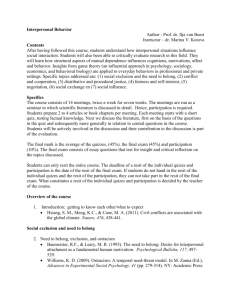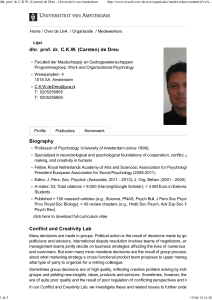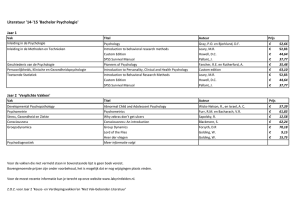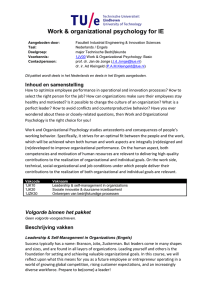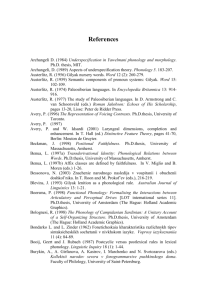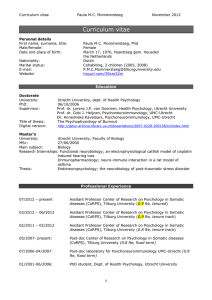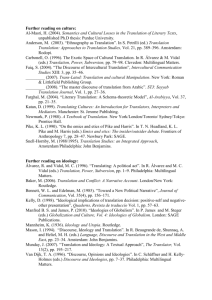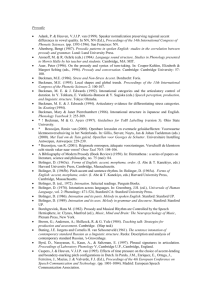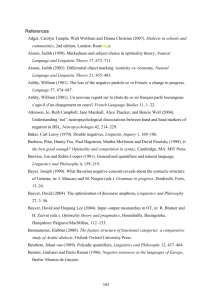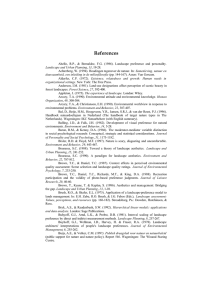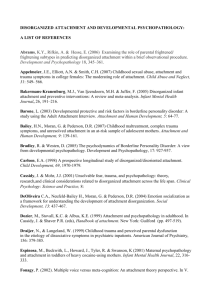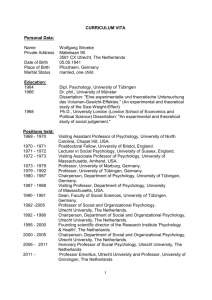Alkudozás és méltányosság
advertisement
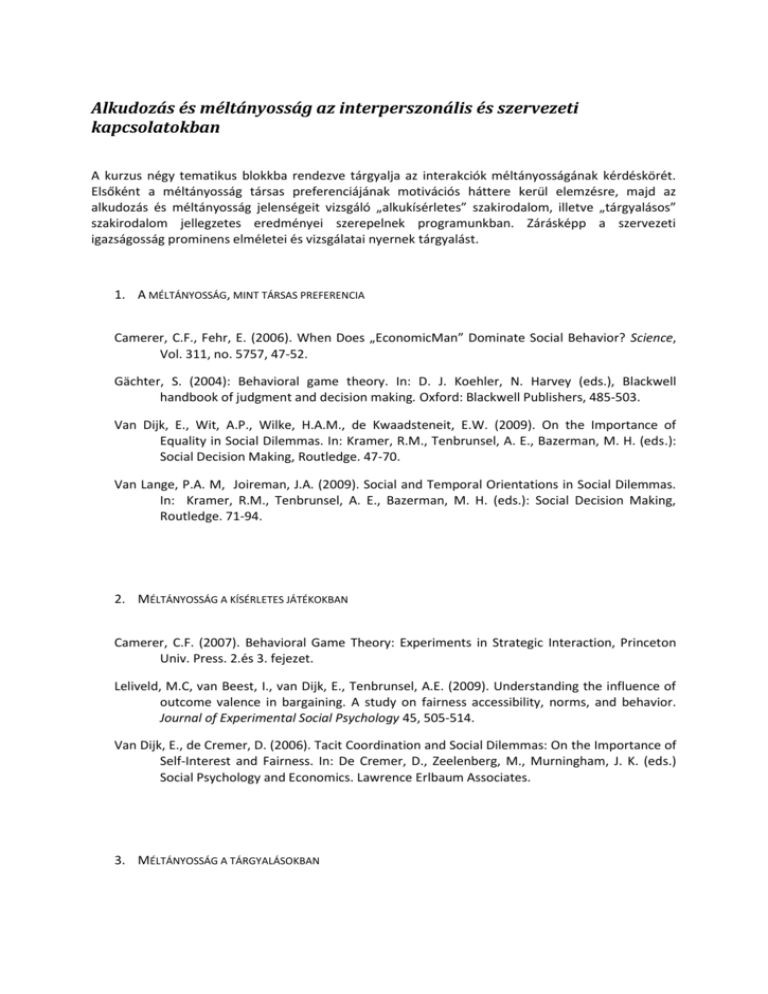
Alkudozás és méltányosság az interperszonális és szervezeti kapcsolatokban A kurzus négy tematikus blokkba rendezve tárgyalja az interakciók méltányosságának kérdéskörét. Elsőként a méltányosság társas preferenciájának motivációs háttere kerül elemzésre, majd az alkudozás és méltányosság jelenségeit vizsgáló „alkukísérletes” szakirodalom, illetve „tárgyalásos” szakirodalom jellegzetes eredményei szerepelnek programunkban. Zárásképp a szervezeti igazságosság prominens elméletei és vizsgálatai nyernek tárgyalást. 1. A MÉLTÁNYOSSÁG, MINT TÁRSAS PREFERENCIA Camerer, C.F., Fehr, E. (2006). When Does „EconomicMan” Dominate Social Behavior? Science, Vol. 311, no. 5757, 47-52. Gächter, S. (2004): Behavioral game theory. In: D. J. Koehler, N. Harvey (eds.), Blackwell handbook of judgment and decision making. Oxford: Blackwell Publishers, 485-503. Van Dijk, E., Wit, A.P., Wilke, H.A.M., de Kwaadsteneit, E.W. (2009). On the Importance of Equality in Social Dilemmas. In: Kramer, R.M., Tenbrunsel, A. E., Bazerman, M. H. (eds.): Social Decision Making, Routledge. 47-70. Van Lange, P.A. M, Joireman, J.A. (2009). Social and Temporal Orientations in Social Dilemmas. In: Kramer, R.M., Tenbrunsel, A. E., Bazerman, M. H. (eds.): Social Decision Making, Routledge. 71-94. 2. MÉLTÁNYOSSÁG A KÍSÉRLETES JÁTÉKOKBAN Camerer, C.F. (2007). Behavioral Game Theory: Experiments in Strategic Interaction, Princeton Univ. Press. 2.és 3. fejezet. Leliveld, M.C, van Beest, I., van Dijk, E., Tenbrunsel, A.E. (2009). Understanding the influence of outcome valence in bargaining. A study on fairness accessibility, norms, and behavior. Journal of Experimental Social Psychology 45, 505-514. Van Dijk, E., de Cremer, D. (2006). Tacit Coordination and Social Dilemmas: On the Importance of Self-Interest and Fairness. In: De Cremer, D., Zeelenberg, M., Murningham, J. K. (eds.) Social Psychology and Economics. Lawrence Erlbaum Associates. 3. MÉLTÁNYOSSÁG A TÁRGYALÁSOKBAN Carnevale, P. J.( 2006). Creativity in the Outcomes of Conflict. In: Deutsch, M., Coleman, P.T., Marcus, E. C. (eds.): The Handbook of Conflict Resolution. Wiley. Henderson, M. D., Trope, Y., Carnevale, P. J. (2006). Negotiation from a near and distant time perspective. Journal of Personality and Social Psychology, 91, 712-729. O’Connor, K. (2008). Cooperation in Negotiation and Conflict Resolution. In: Sullivan, B.A., Snyder, M., Sullivan, J.L. (eds.) Cooperation-The Political Psychology of Effective Human Interaction. Blackwell. De Dreu, C. K. W., Weingart, L. R., Kwon, S. (2000). Influence of social motives on integrative negotiation: A meta-analytic review and test of two theories. Journal of Personality and Social Psychology, 78, 889-905. 4. A SZERVEZETI IGAZSÁGOSSÁG Tyler, T. R., De Cremer, D. (2006). Cooperation in Groups. In: De Cremer, D., Zeelenberg, M., Murningham, J. K. (eds.) Social Psychology and Economics. Lawrence Erlbaum Associates. Greenberg, J. (2004). Stress Fairness to Fare No Stress: Managing Workplace Stress by Promoting Organizational Justice. Organizational Dynamics, Vol. 33, No. 4 352-365. Cropanzano, R. at al. (2004). Accountability for corporate injustice. Human Resource Management Review, 14. 107-133. Van Prooijen, J.-W., De Cremer, D., van Beest, I., Ståhl, T., van Dijke, M., Van Lange, P. A. M. (2008): The egocentric nature of procedural justice: Social value orientation as moderator of reactions to decision-making procedures. Journal of Experimental Social Psychology, 44(5), 1303-1315.
